OP2 Sequence
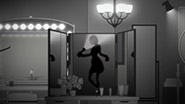 |
 |
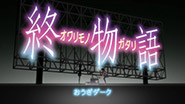 |
 |
 |
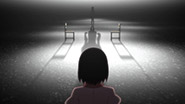 |
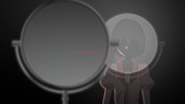 |
 |
OP2: 「dark cherry mystery」 by 水橋かおり (Mizuhashi Kaori)
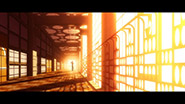 |
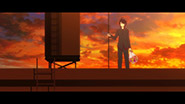 |
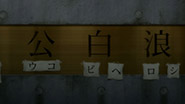 |
 |
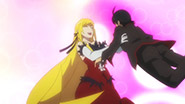 |
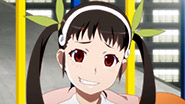 |
 |
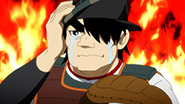 |
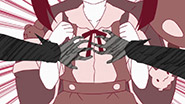 |
 |
 |
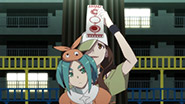 |
 |
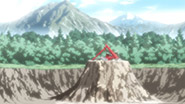 |
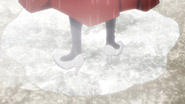 |
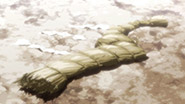 |
 |
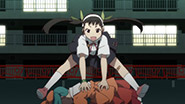 |
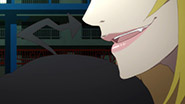 |
 |
 |
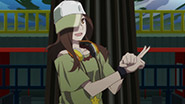 |
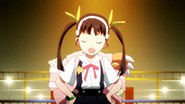 |
 |
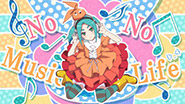 |
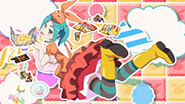 |
 |
 |
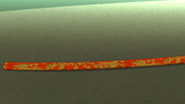 |
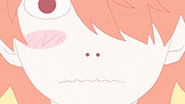 |
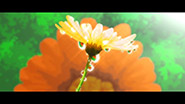 |
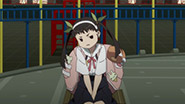 |
 |
 |
 |
 |
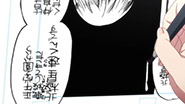 |
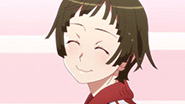 |
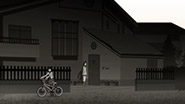 |
 |
 |
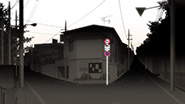 |
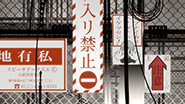 |
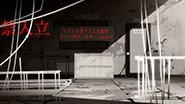 |
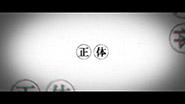 |
 |
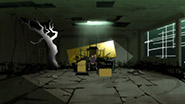 |
 |
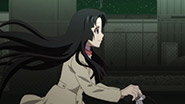 |
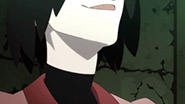 |
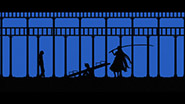 |
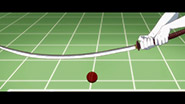 |
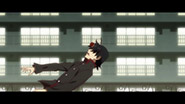 |
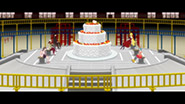 |
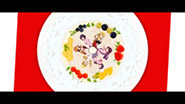 |
 |
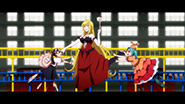 |
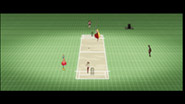 |
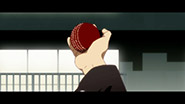 |
 |
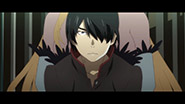 |
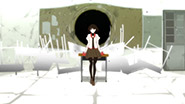 |
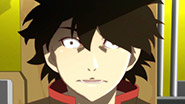 |
 |
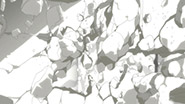 |
 |
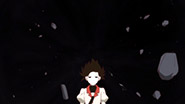 |
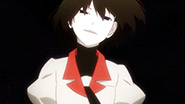 |
 |
 |
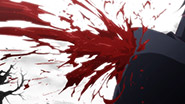 |
 |
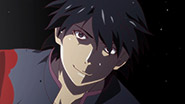 |
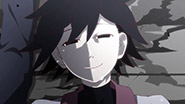 |
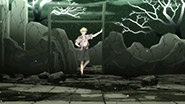 |
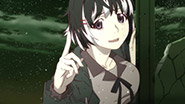 |
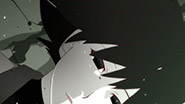 |
 |
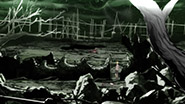 |
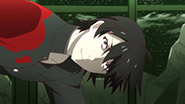 |
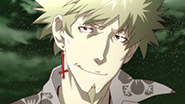 |
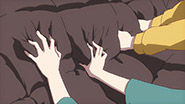 |
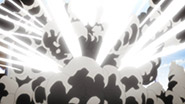 |
 |
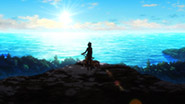 |
 |
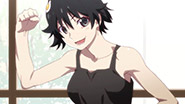 |
 |
 |
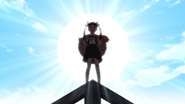 |
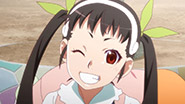 |
 |
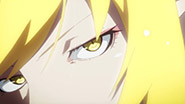 |
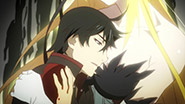 |
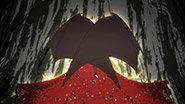 |
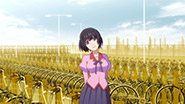 |
 |
 |
 |
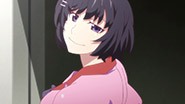 |
 |
 |
 |
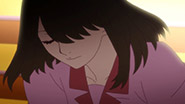 |
 |
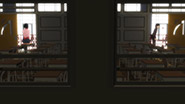 |
 |
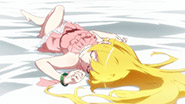 |
「おうぎダーク」 (Ougi Daaku)
“Ougi Dark”
I don’t really like it when anime spell things out. Most importantly, that’s my job. Less importantly, it doesn’t make for very interesting storytelling. For one, there’s the loss of the mystery element. Like Ougi herself, many stories are fueled by mystery, stripping it away with an infodump is like flooring the brakes of a speeding car. The other is that spelling things out directly is rarely the best way to get something into the heads of the audience. Humans have some pretty strong mental barriers against ideas from the outside, but from the inside we can convince ourselves of almost anything, so it’s much more effective to lay out the clues and let us draw our own conclusions. Subtlety is the key. But we’ve got Gaen around and she’s the plot sledgehammer, and I suppose this is the End Story (though of course there’s still Zokuowarimonogatari so whatever), and if there’s ever a time to spell things out it is now. So Monogatari says flat out: in a story firmly about Araragi Koyomi going through adolescence, Owari- is about that end of it.
Ougi has always been something of Koyomi’s foil, and now we know why: she was literally created to be his foil. She’s his shadow in a very Jungian sense, something that he does not want to accept but ultimately has to. This second half of Monogatari has spent some time discussing the difference between doing the right thing and fixing mistakes, and in hell Koyomi decided that he’s been doing the right thing, and if given the chance to redo his life will still make the same choices. Still, he admits that mistakes, he’s made a few, and perhaps one day they’ll catch up with him. But they never do. He thinks they should, hence Ougi. Ougi is a creature of rules. Of course, she’s not the rules, as we know that she’s been merely masquerading as the darkness. And that fundamental lie that underpins her existence is a clear breach of those unwritten rules. But that only highlights her respect for the order of things when comparing her to the specialists. They play fast and loose with the rules, and are adept at bending them for their own purposes. Enshrine a snail instead of a snake, because snail > snake? Yeah, sure, we’ll go with that. If she’s been pretending to be my niece, I’ll just say she’s my niece. Now we’re cool. It’s purely rhetorical, and feels like cheating, but it works. Ougi, though, doesn’t function like that. She doesn’t accept being able to linguistic-judo one’s way around strict consequences. She is either black or white. She cannot bend the rules. She can only break them.
Both Koyomi and his manufactured shadow, Ougi, represent a certain adolescent naiveté. Koyomi believes in helping people (‘people’ meaning ‘women’) without question, believes that everyone deserves a happy ending, and believes in doing the right thing is about intention rather than consequences. Ougi, on the other hand, believes in a world that has rules, a world that is orderly, and that there are natural consequences to actions regardless of intention. They are both ways we try to have the world make sense, the former morally, and the latter logically. If doing the right thing doesn’t lead to a happy ending, then the world doesn’t make sense morally. But if making a mistake doesn’t result in punishment, then the world doesn’t make sense logically. Of course, nothing is ever that simple, but we desire that everything was, and when one is young we can still be stubborn about how things should be simple. If you recall, Koyomi used to have a love for mathematics. Mathematics is logical. Mathematics is clean. Mathematics is elegant. With the right process one always ends up at the right solution. Even this whole Koyomi/Ougi split is born out of a search for elegance. When faced with two seemingly contradictory philosophies, the Koyomi’s subconscious evidently decided that one must be right, and one must be wrong. And thus Ougi is cast as a villain, and enemy that can be fought. If Koyomi defeats Ougi, he justifies himself. If Ougi defeats Koyomi, then his self-loathing is satisfied. It’s similar to how Kaiki plays the villain. Real evil has no form, and so Kaiki takes on the role of evil, because everything works out better when there is a villain. Indeed, Koyomi will always vilify Kaiki, and be happier for it.
But Koyomi was never one for looking at the big picture or deep philosophical musing. And so he saves Ougi because, hey, save the girl, save the world. In essence, he refuses to let go of his adolescence. To become an adult often requires killing that spark of idealism, but Koyomi can’t do it. The world should have an order. It should make sense. It’s only proper that once he’s able to reconcile with what Ougi stands for, Oshino Meme shows up and bends the rules for him once again so that everything works out. That spark of youthful idealism is worth protecting, and I think it’s only fair that it’s the adults’ role to protect it.
Final Impressions
End Story or not, we know there’s more Monogatari out there, so this is not really the end. But it sure could be. Throughout the entire ordeal of Owarimonogatari we’ve beaten out our protagonist’s character, examined it for all its flaws, and eventually resolved his internal conflicts. We’ve reflected on his journey, and decided its worth. That’s basically as much as you can ask for in any story. We’ve had our epilogue in Hanamonogatari, we’ve even had Mullet!Araragi, so perhaps it’s now time to wrap things up for good.
Still, Monogatari is a story about Koyomi’s adolescence, and he’s decidedly hung on to that for now, so the end is, if anything, open. And part of me sort of wishes that we never have a decisive conclusion to that tale, because I think the inner child is worth preserving and Koyomi’s is positive enough now that he’s gotten over his martyr complex. His friends seem dedicated to helping him keep being the impulsive, idealistic, slightly chauvinist hero he’s always been, and who am I to say otherwise? I won’t go pretending any of my impressions are final.
I’ve also actually written a lot about the Monogatari Series, and I think you can tell by now what I think about it. It’s a good eight years old, it has stuck to its guns, and it has consistently delivered. To tell the truth, back when I first watched Bakemonogatari I wasn’t expecting that we’ll ever get this far. It was extraordinarily dialogue heavy, it looked very cheap at times, and it was plagued by production issues. Certainly niche fare, I would have thought. Now look at it. I have to give credit to the production team at Shaft for their success, and in particular for always improving on Monogatari. It’s certainly a unique kind of adaptation, and no doubt tricky, but I think they’ve experimented and iterated and have managed to wrangle it to their liking. Now I can confidently say that the Monogatari is now a full function of language and imagery, as opposed to just language and some distractions.
So, congratulations on seeing the End Story through to completion, Monogatari, and here’s to many more. Well, maybe not many more, but I wish Araragi Koyomi the best for the future, and he’s got a lot of future ahead of him.

I remember that, back in the reviews of the first Owarimonogatari series, another user proposed that Ougi was Araragi’s oddity, not unlike the Cat was Tsubasa’s. The details of the theory were a bit off, but the core was right. And I remember saying that it was “not only posible, but narratively desirable”, a great fit for Monogatari‘s themes.
And so she was. The Jungian shadow. Darth Koyomi.
That I disagree with. Ougi may look like that at first, but only because she pretended to have the lawful virtues Araragi saw in the darkness. In the Ougi Dark novel, she goes as far as mocking the concept of a “black and white” dichotomy:
Show Spoiler ▼
After all, it’s not as if the specialists are more flexible in that regard. Meme is, but he represents balance more than anyone, and a common theme in the series has been that each of his occult comrades have very different viewpoints on their work. Gaen herself is a Knight Templar. Don’t judge her flexibility based on this situation; she was against the ropes here and her initial plan was a risky rehearsal of her original “Shinobu in the shrine” idea that ended in abject failure. And let’s not mention her plan for Ougi.
Actually, it’s played for laughs in the novel: both Araragi and Gaen admit that the “topsy-turvy ending” wasn’t typical of her XD
I think it’s better to imagine Ougi as what she is said to be: the embodiment of Araragi’s self-doubt, self-hate and self-criticism. No more, no less, yet it explains almost every action of hers.
Rewatch her scenes after knowing the truth. Don’t imagine Ougi as an independent player who has a blue-and-orange morality code, but as Araragi’s dark side who whispers to himself, and suddenly everything makes sense, from her distaste with Araragi relying on Hanekawa for help to her assuring that karma would bite Kaiki in the ass. The latter also counts as part of her campaign to get rid of the specialists:
Show Spoiler ▼
Not bad for an oddity born from Araragi’s dark side.
As for the resolution, Carl Jung put it better than I could:
We’ll probably have to agree to disagree, but no matter what she says (remembering that her purpose is to chastise Koyomi), she’s definitely a creature of black and white (check out that OP). Part of Koyomi wanted black and white, to have actions attract definite consequences, even if life doesn’t necessarily work that way. And he also wanted that philosophy to be a concrete thing, to be clearly separated, to be an enemy to oppose him, even if that’s not really true either.
Gaen, on the other hand, may be less flexible than Oshino not because she’s not able to be, but because she sees no reason to be. But when necessary she seems an adept rules contortionist. I don’t know about anyone else, but for me be it enshrining a vampire instead of a snake, or a snail instead of a snake, or killing a half-vampire to send him to hell so you can revive him later as a full human thanks to an agent you planted in hell in advance, my only reaction can be, ‘Yeah, sure, as long as you say it works.’.
Oh, no, I agree that Koyomi craved exactly that. And Ougi herself admits she tried to play that part with all her effort, to be more darkness than the darkness itself. From the novels:
Show Spoiler ▼
But the moral of the story was precisely that, in the end, Ougi could never be that force of lawfulness because she was never Araragi’s opposite; she was his dark side. She wasn’t the enforcer of rules, but that insidious and criticizing inner voice that whispers his darkest thoughts (from “Stop relying on Hanekawa, you can be as clever as her” to “I wish I didn’t need to use this talisman on Shinobu”). She bent, and broke, and cheated the rules as often as she pretended to enforce them, because ultimately the best she could strive for was finding out which of Araragi’s sides was right from a personal perspective.
And of course, in full Monogatari fashion, it turned out that neither was.
Ah, I see. But bear in mind that enshrining Shinobu was always Gaen’s plan A because the vampire lady had crushed (unknowingly) the original shrine god. Gaen was so obsessed about that godly superiority that, when plan A failed (among other things, because Araragi and Shinobu were reluctant to be apart from each other), instead of looking for an alternative candidate she forced the issue AGAIN by murdering Araragi and purging his vampire link during the resurrection despite knowing full well that she risked predisposing both Araragi and Shinobu against her (as she lampshaded during her conversation).
If that’s an example of flexibility, what about Ougi?
Show Spoiler ▼
Yeah, I don’t see it quite like you do. I don’t think Ougi was just an embodiment of Koyomi’s self-deprecation. He knows he has a self-centred morality, and that he screws up a lot. Yet he comes out of every case rather well. Shouldn’t his impulsiveness have gotten him intro trouble? Shouldn’t his victories have required sacrifice? Those are the rules, not the nebulous darkness thing, but karma (Buddhist hell yada yada, but of course he gets out of that one too). Hence Ougi, who was born out of his belief in a karmic universe, in cause and effect, in consistent laws. Nadeko’s apotheosis was not really about supplanting Shinobu. It was karmic punishment for Koyomi. He refused to fill the seat with Shinobu, but the seat must be filled, and he should have suffered the consequences for his dereliction.
I’m not saying it’s as simple as the specialists don’t follow the rules and Ougi does. The specialists would prefer if nobody made their jobs harder, and indeed everybody follows the rules—up to the point that it’s not favourable for them and then it’s, actually, those rules are open to interpretation. And they get away with it—or rather, Koyomi gets away with rules being bent on his behalf (like when Kagenui spared his sister). The difference is that Ougi knows that she broke the rules hard and insists that there should be consequences for doing so. That is why she accepts that she should be swallowed by the darkness.
And so it pretty much ends where it began, I was not expecting to like this series as much as I did, It’s not in my top 10 but it is definitely an interesting ride, It was such a treat to have Meme Oshino and Hanekawa return at that moment, and also how Kissshot willingly wanted to return to being Shinobu loli form. I do wish we got one kiss from Hitagi and Koyomi though. Also throughout the whole Gaen talking there is something going on in background with Kisshot, Mayoi and (forgot her name) the Doll as she was paying them back for the teasing they did to her in loli form xD. I can’t remember was Kaiki killed by Ougi earlier at end of Sengoku’s arc?
Also a little tidbit, when Hanekawa returned she said “I won” I think that was from the first season of Owarimonogatari when she and Ougi were competing.
Kaiki was ‘killed’ right as he was skipping town after fixing Nadeko, but of course, he got better.
It’s a pity that the series didn’t expand on Hanekawa’s genius in this scene, how she managed to find Meme Oshino in Antarctica. Hitagi mentioned it a bit in Hitagi Rendezvous, saying that the clue Hanekawa told her was “this is a pen”.
No, it wasn’t. Hitagi misheard it. The real clue was “dépaysement”. To search for Meme the furthest away from home, in the places he was least likely to be. When Araragi puts it into words, it sounds incredible: “It’s hard to believe she guessed right on a 50-50 chance, located Meme Oshino, and came all the way back to Japan in just one day”.
Sorry, Ougi, but Hanekawa is indeed the most brilliant person in all the setting.
Seeing as I’m at a bit of a loose end at the moment given that the cricket test match between England and the West Indies has been halted by rain, I’ll restrict my comments solely to cricket for the moment.
Cricket? Cricket? In my Monogataris? HOWZAT!?
Gaen bowling right arm seam over the wicket to Shinobu with Hachikuji as wicket keeper, Yotsugi fielding at short mid off and Koyomin at mid-wicket. Except it looked like Gaen was bowling no balls, but without seeing them from square on to the popping crease I can’t be sure. Hachikuji is adopting a baseball catcher stance rather than a wicket keeper stance too, and would normally be wearing gloves on both hands. There shouldn’t be a line painted halfway down the pitch either. And the tea interval is never referred to as “tea time”, just “tea”. But the real elephant in the room is Shinobu’s cricket bat, which clearly falls foul of law 5.3.2 and quite possibly also law 5.7.1:
5.3.2 The blade of the bat shall consist solely of wood.
5.7.1 The overall length of the bat … shall not be more than 38 in/96.52 cm.
So nice try, Shaft, you got quite close. But is it really in the LN that they play cricket, or is this Shaft’s fevered imagination?
Really, there should be a rule against undead players in the first place. A clear oversight.
I did double-check that, and it doesn’t even say that the players have to be human. The ball though can be live or dead.
Kiss-Shot is adorable when she’s in her big form. I wish she stuck with it more often. She’s like an adorable big sister.
Really, look at this: https://randomc.net/image/Monogatari/Owarimonogatari%202nd%20Season%20-%2003%20-%20Large%20011.jpg
Look at that huge smile on her face.
But since her smile has fangs in it she looks as ready to eat him as anything else (if we didn’t know better). Which I guess is exactly the reason she wants to be small again.
ane naru mono-vampire version haha
If Bakemonogatari was the Big Bang of the Monogatari universe (at least from a literary perspective) then this final part of Owarimonogatari is its Big Crunch. It’s where everything comes together again as all the loose ends are neatly tidied away, even some things that we didn’t even realise were loose ends, with Gaen acting as psychopomp leading all the current storylines towards their metaphorical ends.
Apart from the game of cricket of course, the stand out scene for me was near the end when Shinobu is cradling her injured master. The dialog between them brought me close to tears as it reaffirmed their bond, almost like an elderly couple reaffirming their wedding vows. Except Shinobu’s response to Araragi’s statement that if she died then he would die the same day was all the more touching, saying that if he died she would first need to find someone to tell all about him before she could die. And then, in a wonderful piece of symbolism, as the sun rises her huge vampire wings close gently around him.
So the big question in my mind is how did NisiOisiN manage to pull this off? Did he plan everything out right from the start, or did he without any forethought somehow still manage to wrangle all the storylines together into such a satisfying conclusion? I have no idea, although perhaps there are people who do, in which case I’d really like to know!
I, of course, have no exclusive personal knowledge on how Nisio does anything, but the way it usually is, I gather from general anecdotes, is that the beginning and the end are actually usually the clearest in any planning, and then it’s about filling out the stuff in between. And then when you write one thing it naturally leads to another and then the big picture is born.
Are you quite sure your uncle doesn’t work for Shaft or something? I mean, you’re not so far away from Tokyo.
And btw, as a contributing author I don’t know how much information you get to see about up and downvotes, but I really did mean to upvote your comment rather than downvote it. I blame that rather nice bottle of Chardonnay I had with my lunch.
I can’t remember when Ougi said she was the darkness. Can anybody tell me?
That’s the point; Ougi never claimed she was the darkness (heck, she denied it outright at the end of the previous episode), but through her mannerisms and vague references, she let Araragi arrive to the wrong conclusion. It wasn’t a far-fecthed assumption to make; that Ougi had links to the darkness was a common theory in the fandom too.
Ougi was born not long after he witnessed the darkness in action, a force of nature that punished those who broke the order of the universe, and secretly wished for something like that to punish his perceived wrongs. And Ougi actively tried to emulate it in order to satisfy that self-criticism of his. But she wasn’t the darkness and could never be.
But I seem to remember it was said that if the lie about Ougi being the darkness was exposed she would be erased. Wasn’t that the case?
Not exactly; the key was to expose Ougi’s identity as an oddity. All exposed oddities are destroyed by the Darkness regardless, and Gaen explains that a specialist’s actual job is usually trying to understand the true reasons behind an oddity and dismantling them. It’s just that in Ougi’s case, her pretending to be the Darkness would make the summoning of the real deal extra effective. From the novel:
Show Spoiler ▼
Ougi lied, pretending to be a normal human schoolgirl and Meme Oshino’s niece when she was Araragi’s oddity. That was what Araragi needed to expose himself. If her vague mantling of the Darkness was enough to doom her to oblivion, Gaen could have exposed her without Araragi’s involvement and Meme couldn’t have saved her by acknowledging her as his niece.